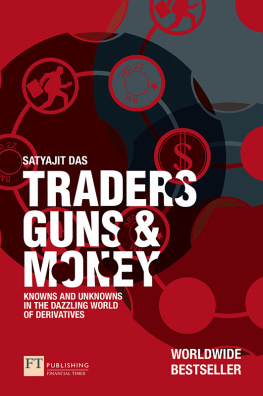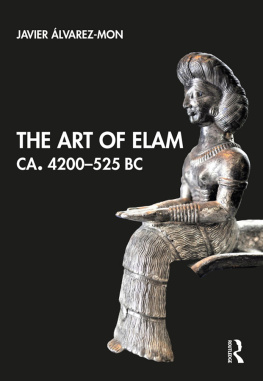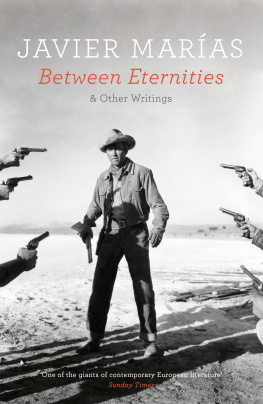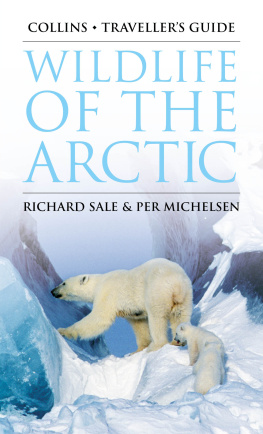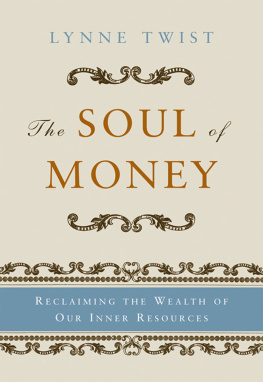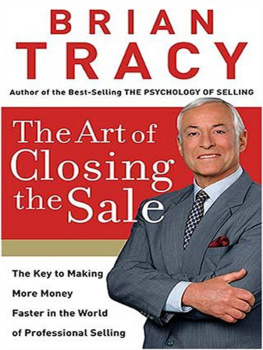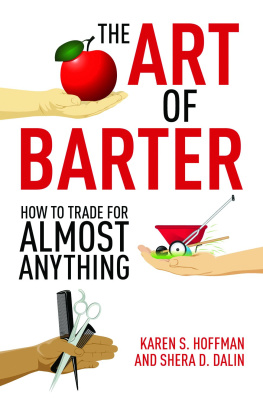Javier Blas and Jack Farchy
THE WORLD FOR SALE
Money, Power and the Traders Who Barter the Earths Resources
CONTENTS
ABOUT THE AUTHORS
Javier Blas and Jack Farchy are two of the worlds best-known journalists covering energy, commodities and trading houses. They both work for Bloomberg News, where Blas is chief energy correspondent and Farchy is a senior reporter covering natural resources. Previously, they covered commodities for the Financial Times .
Blas and Farchy have interviewed most of the key figures in the commodity trading industry in some cases, the first time the traders had ever spoken publicly. Theyve published the financial accounts of many of these secretive companies for the first time. And theyve reported on oil, food and war from countries as diverse as Kazakhstan, Ivory Coast, and Libya.
The pair frequently appear on TV and radio as experts on commodities. Blas has been interviewed on BBC News, CNN and Al Jazeera, and Farchy regularly appears on BBC Radio 4 Today. The World for Sale is their first book.
INTRODUCTION
THE LAST SWASHBUCKLERS
The plane banked hard as it started its descent.
Far below, the placid waters of the Mediterranean had given way to a barren expanse of North African desert. Columns of smoke dotted the horizon. Inside the small private jet, the occupants were stony-faced, bracing against their seats as they descended in a series of stomach-churning corkscrew turns.
This wasnt a normal business trip, even for Ian Taylor. In four decades trading oil, Taylor had set down in plenty of hot spots, from Caracas to Tehran. Yet this journey destination Benghazi, Libya, in the midst of a civil war was a new experience.
Taylor only had to look out of the window to be reminded of the risks he was running. A thousand feet below, a lonely NATO drone was chaperoning his plane. Taylor, chief executive of Vitol, the worlds largest oil-trading company, found himself wishing his contacts in the British government had sent a proper fighter jet to escort him.
It was early 2011, and the entire region was in the throes of a wave of popular uprisings that came to be known as the Arab Spring. In Libya, forces revolting against the forty-two-year dictatorship of Colonel Muammar Gaddafi had just taken control of Benghazi, the most important city in the east of the country, and founded their own government.
The rag-tag army of rebels had a big problem, however. It was running out of fuel. The rebels urgently needed diesel and gasoline for their military vehicles and heavy fuel oil to run their power stations. Libyas own refineries had been shuttered by the war, leaving only a trickle of fuel entering the country via hundreds of trucks making the arduous trip from Egypt.
If anyone could take the risk of supplying a rebel army in the middle of a bloody war, it was Ian Taylor. Now in his mid-fifties, he combined the easy charm of a member of the British establishment with the taste for adventure that was a prerequisite for an oil trader. He had never been afraid to lead Vitol to places where others feared to tread. And, in a world where oil and money go hand in hand with power, he was not one to shy away from deals that carried wider geopolitical significance.
When, a few weeks earlier, the possibility of a deal with the Libyan rebels had come up, Taylor hadnt hesitated. Vitols team in the Middle East had received a call from the government of Qatar. The small gas-rich Gulf state had become a key political and financial backer of the Libyan rebels, acting as a go-between for them with Western governments and supplying them with weapons and cash. But buying tankers full of refined oil products and delivering them into a war zone was beyond Qatars capability. It needed the help of a commodity trader. The Qataris wanted to know if Vitol could supply diesel, gasoline and fuel oil to Benghazi.
Vitol had four hours to think about it, and respond. The trading house only needed four minutes to say yes.
But there was a big catch. The rebels had no cash. Instead, Vitol would have to take payment in the form of crude oil from the few oilfields that the rebels controlled. In theory, that shouldnt have posed a problem: Vitol could deliver fuel across the Mediterranean to the port of Benghazi, while receiving crude oil via a pipeline to the coastal city of Tobruk, near the Egyptian border and far away from the fighting (see map on ).
Taylor and the rest of Vitols top brass quickly put together a proposal. It was nothing new for a big trading house like Vitol to barter one commodity for another, particularly when facing a cash-strapped customer. Indeed, other traders were also vying to take part in the deal with the Libyan rebels. But Vitol was more aggressive: it was willing not only to handle the shipments of fuel, but also to extend credit to the Libyan rebels, effectively lending them money.
The company had another advantage: its political connections in London and Washington. Taylor, a gifted social operator with the charisma of a born politician, was a leading donor to the ruling Conservative Party. His contact book in Londons business and political elites was second to none. Only a few months later, he would join other financiers at a dinner with the prime minister at 10 Downing Street. Obviously, I got permission from the Brits to go in, Taylor later recalled.
In the UK, a covert Oil Cell at the Foreign Office worked to prevent Gaddafis forces from obtaining fuel or selling crude internationally. Washington granted a sanctions waiver to allow US companies to buy Libyan oil from Vitol. And, of course, there was the NATO drone.
But while London and Washington were supportive of Vitols mission, they werent prepared to intervene too overtly on its behalf. As Taylor descended into what was still a war zone, he knew that, if something went wrong, he was on his own.
The possibility of anti-aircraft fire from Gaddafis forces meant that a conventional landing was too dangerous, so the pilot descended as fast as the jet could dive. Taylor was alone in the small plane apart from a pair of hired bodyguards and Chris Bake, a thick-set New Zealander who ran Vitols operations in the Middle East.
If the descent made his stomach turn, Taylor didnt get much comfort from what he found on the ground. In the spring of 2011, Benghazi was lawless and unstable. The city, a collection of dusty concrete buildings clustered around a fetid lagoon, was located just a few hundred kilometres from the frontline of a conflict that was still raging. The air was thick with the sounds and smells of war. Putrid-smelling hospitals were overflowing with amputees and other casualties. The dusty streets were filled with men and boys with Kalashnikov assault rifles strapped to their backs.
At night, random blackouts left the city without electricity for hours at a time. Patrols of heavily armed youths set up checkpoints at roads around the city. Out of this lawless environment would emerge the armed mob that, a year later, stormed the US consulate and killed Chris Stevens, the ambassador to Libya.
Benghazis citizens, exhausted by decades of dictatorship and months of war, cowered in their homes. Saif al-Islam, Gaddafis son, took to state television to make a bloodcurdling speech in which he promised further carnage: We will fight until the last man, the last woman, the last bullet.
Benghazi had long been the hub of Libyas oil industry. The countrys richest oil reserves were located in uninhabited expanses of desert in the countrys east nearer to Benghazi than Tripoli, the capital, which was still firmly under Gaddafis control. Most of the oilfields had been abandoned as fighting swept the country, and Libyas top geologists and oil engineers would meet in the evenings in Benghazis main square to discuss their countrys plight. A couple of kilometres away, the regional headquarters of the national oil company of Libya stood next to the blackened shell of a former police station that had been torched by the rebels in the first days of their uprising.




